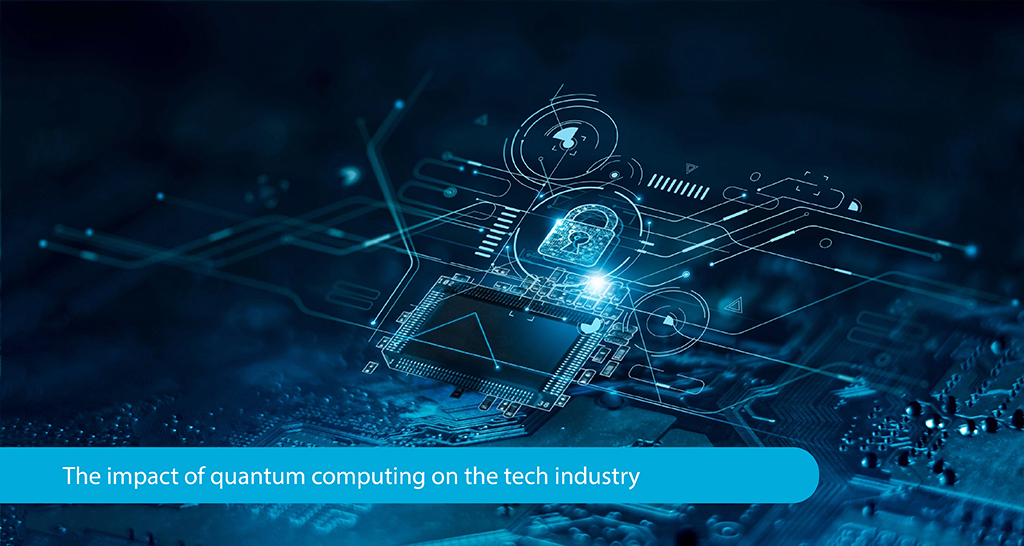Quantum computing stands poised at the cusp of a technological renaissance, heralding new paradigms across a plethora of industries. Characterized by leveraging the principles of quantum mechanics, these advanced computational systems promise to outstrip classical approaches in complexity and problem-solving capability. As we delve into the potential applications of quantum computing, it becomes increasingly clear that its impact will ripple across diverse sectors, prompting a fundamental reassessment of traditional processes and strategies.
Firstly, the financial sector is replete with complexities that quantum computing can elegantly unravel. Financial institutions and investment firms regularly engage in intricate risk analysis, portfolio optimization, and pricing of derivatives. Classical algorithms struggle to process vast datasets with the required speed and accuracy. Quantum computing, with its ability to evaluate numerous possibilities simultaneously, can vastly improve the efficiency of financial modeling and forecasting. By performing calculations that would otherwise take centuries, quantum computers provide a glimpse into future market behaviors and enable unprecedented levels of precision in trading algorithms.
Simultaneously, the healthcare industry stands to benefit enormously from quantum advancements. The realm of drug discovery, wherein pharmaceutical companies develop new medications, is often hindered by the astronomical resources required for traditional computational methods. Quantum computers are adept at simulating molecular interactions at the quantum level, thus accelerating the identification of therapeutic compounds. Moreover, in personalized medicine, quantum computing could analyze genetic information with an unprecedented depth, tailoring treatment plans to individual patient profiles. The synergy between quantum computing and biotechnology heralds a new era of medical breakthroughs.
Further afield, the energy sector is on the brink of transformation, courtesy of quantum computing. As the world mobilizes toward sustainable energy solutions, optimizing the grid and managing renewable energy sources with fluctuating outputs presents significant challenges. Quantum algorithms can enhance models that predict energy consumption patterns and optimize the distribution of energy from various sources. This optimization not only improves efficiency but also fortifies the resilience of energy systems against unexpected disruptions, ultimately leading to a greener planet.
In the realm of logistics and supply chain management, quantum technology is slated to revolutionize operations. The complexity of global supply chains, often comprising myriad variables and constraints, demands innovative solutions that traditional computing cannot adequately provide. Quantum algorithms can facilitate real-time optimization of logistics, improve route planning, and enhance inventory management. As a result, companies can expect reduced costs and improved delivery times. In a world where consumer preferences shift rapidly, such agility becomes a critical competitive advantage.
The field of cybersecurity must also adapt to the impending surge of quantum computing, which introduces both challenges and opportunities. While the development of quantum computers raises concerns about traditional encryption methods being rendered obsolete, it simultaneously fosters the emergence of quantum cryptography. This new paradigm promises virtually unbreakable codes, driven by the principles of quantum mechanics, where any attempt to intercept communication would disrupt the quantum state, thus alerting the communicating parties. As such, industries reliant on secure transactions, including banking and telecommunications, will be forced to reevaluate their strategies in this evolving landscape.
Moreover, the telecommunications arena presents another fertile ground for quantum computing applications. Quantum key distribution (QKD) offers a revolutionary technique for secure communication, utilizing quantum states to ensure data integrity and confidentiality. Future telecommunication infrastructures may harness quantum networks, facilitating instantaneous data transmission over vast distances with unparalleled security. As global connectivity becomes ever more critical, the integration of quantum technology could redefine the parameters of digital communication, enhancing security protocols across sectors.
Additionally, the realm of materials science is set to be radically enhanced through quantum computing. The ability to simulate quantum interactions between atoms enables researchers to design novel materials with specific properties. This capability is invaluable in sectors ranging from electronics to aerospace, where the development of materials with optimized strength, weight, and conductivity can lead to significant advancements. As a result, industries can not only improve existing products but also innovate entirely new applications, pushing the boundaries of science and technology.
Education and research institutions, too, will experience profound shifts due to the integration of quantum computing. By providing researchers with tools that can process complex simulations and large datasets, quantum technology will enable new discoveries in fields ranging from quantum mechanics to social sciences. The implications for fostering collaboration across disciplines are immense, as scholars gain access to advanced computational capabilities promoting interdisciplinary research. This cultural shift in academia may well inspire the next generation of thinkers to explore uncharted territories in human knowledge.
As the cloud-based quantum computing models emerge, small to medium enterprises will also gain access to this powerful technology, breaking down barriers that previously limited participation to large corporations. Such democratization of access could spur innovation at an exponential rate, leading to a competitive landscape enriched by a wave of fresh ideas and solutions.
Finally, the pursuit of artificial intelligence (AI) stands at the precipice of a radical transformation through the advent of quantum computing. Quantum machines, with their ability to process vast amounts of information and identify patterns exceedingly faster than classical systems, may redefine AI algorithms. This catalyzing effect could lead to breakthroughs in machine learning, natural language processing, and autonomous systems. The fusion of quantum computing with AI may unlock capabilities previously deemed inconceivable, thus even altering our perception of intelligence itself.
In conclusion, the relentless march of quantum computing is set to instigate a substantial metamorphosis across numerous industries. As sectors embrace the potential of this groundbreaking technology, they will be compelled to recalibrate their strategies, fostering innovation and efficiency in ways that were once regarded as the realm of science fiction. The future is uncertain, yet imbued with the promise of quantum possibilities.












